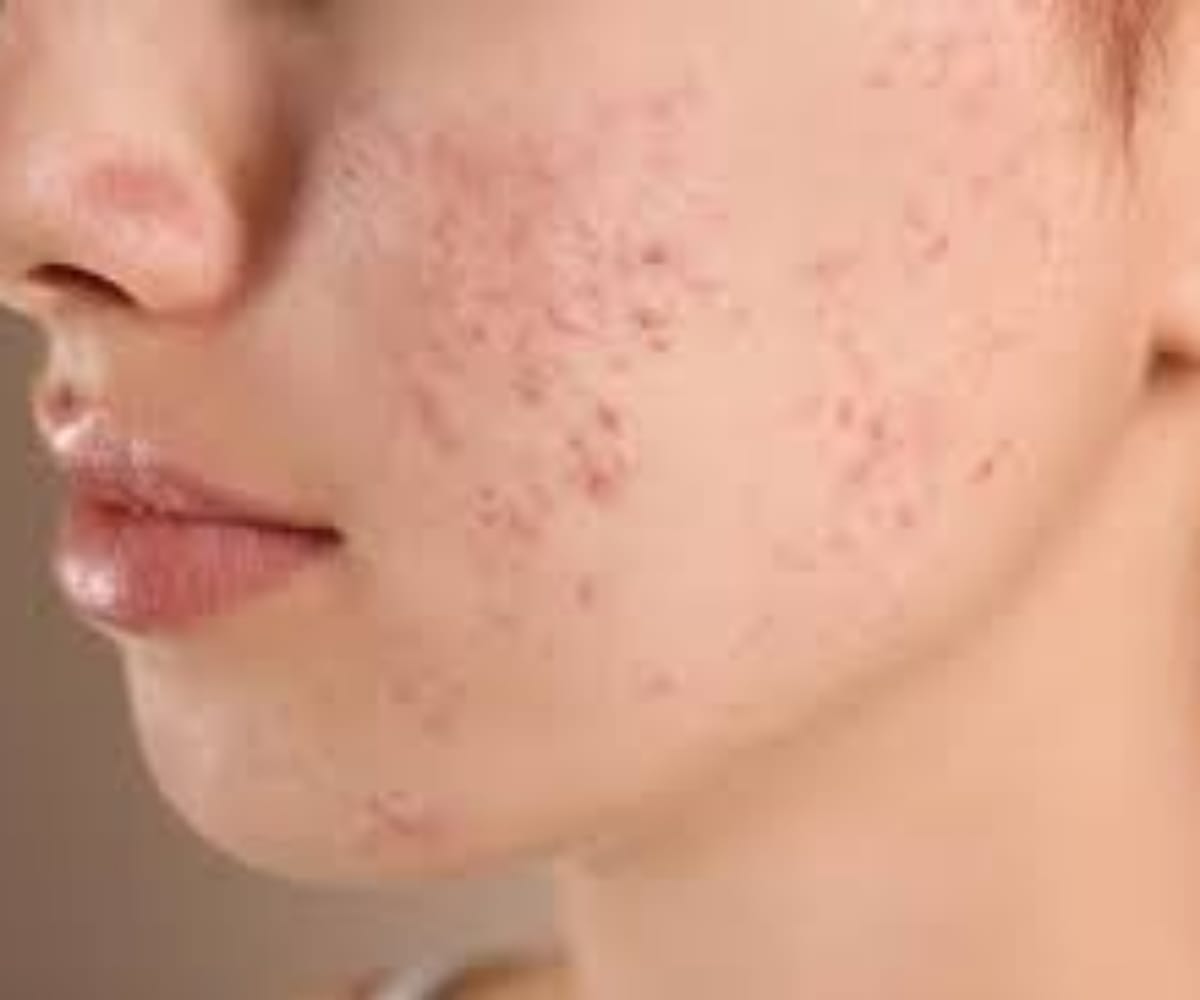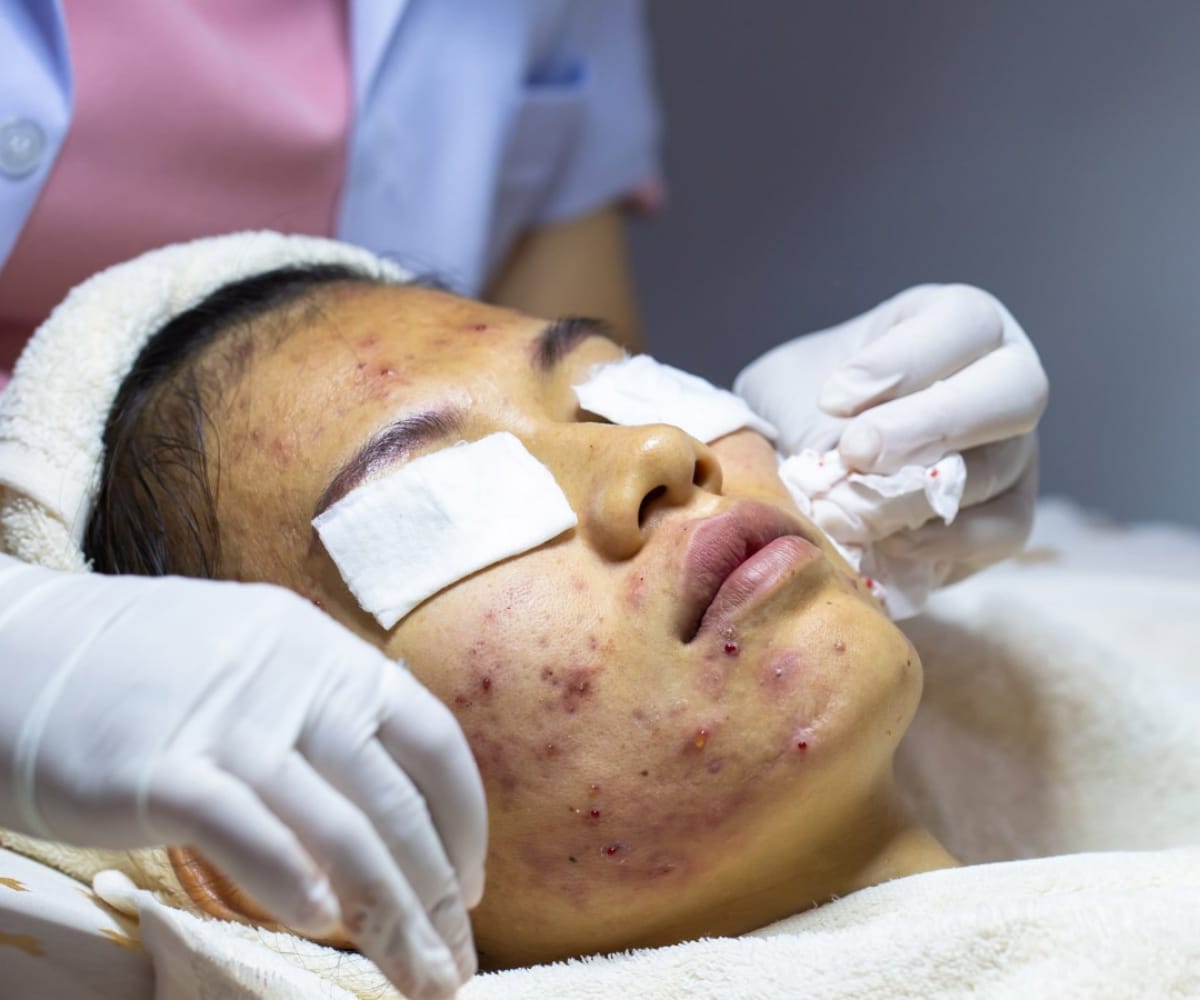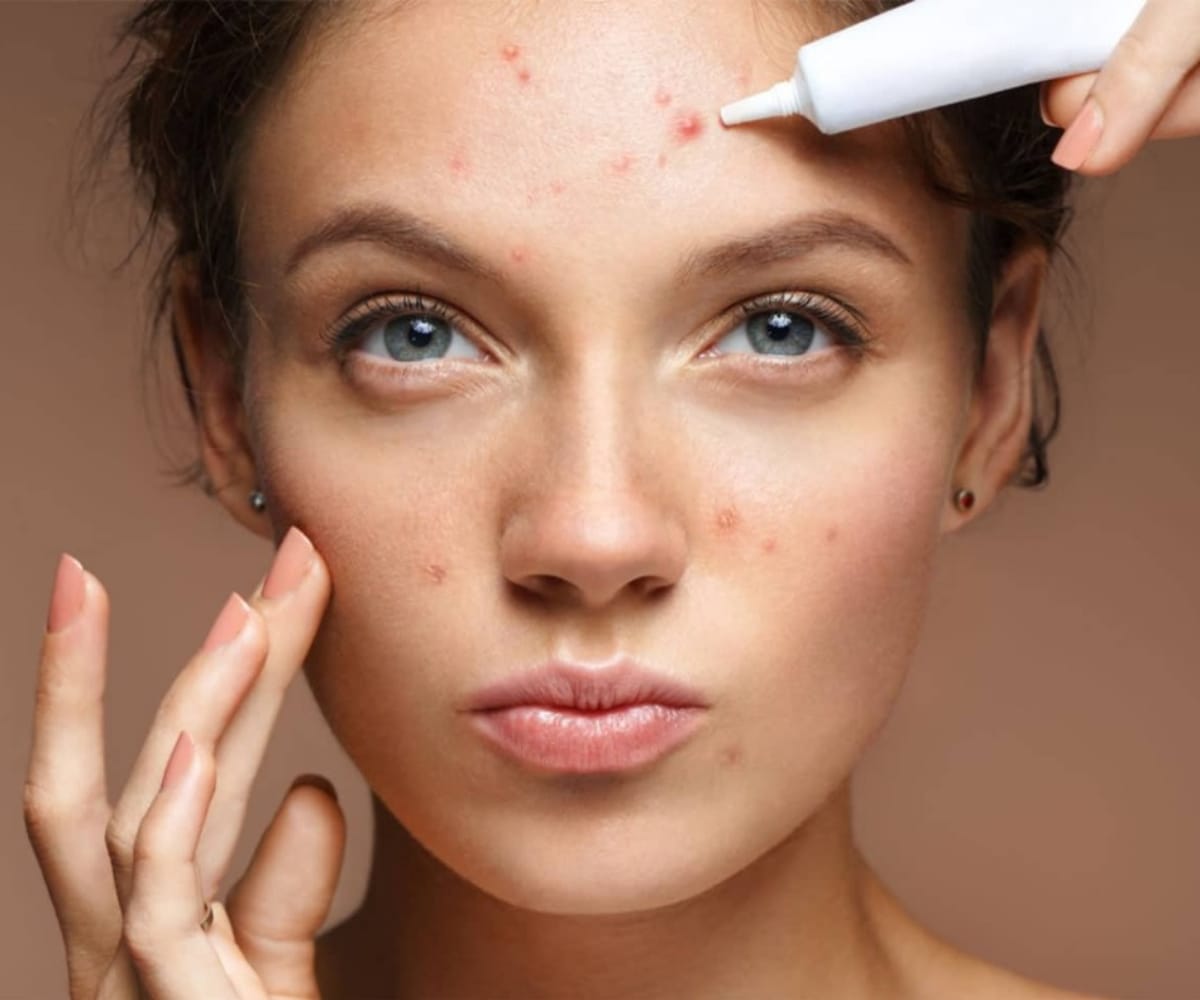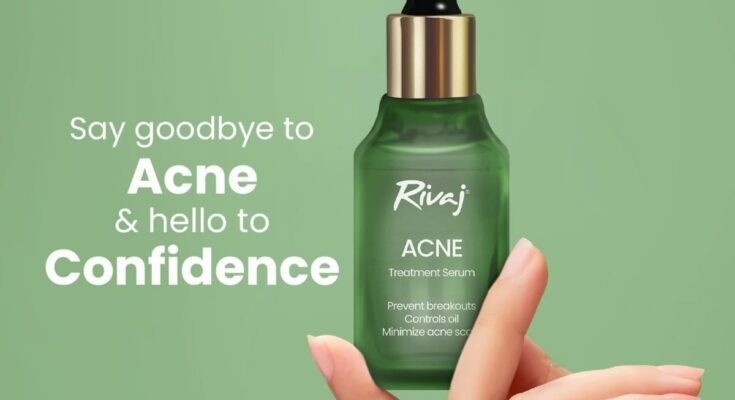Acne Treatment : Effective Strategies, Remedies, and Professional Solutions
Introduction
Acne Treatment Millions of people worldwide suffer from Acne Treatment, making its treatment a concern. Acne Treatment may affect teens and adults, causing physical and mental pain. Choosing the appropriate therapy may clean your skin, enhance your confidence, and improve your well-being. Understanding Acne

So what’s acne?
Acne causes pimples, blackheads, and cysts. It affects the face, back, and shoulders, where oil glands are active. Acne, itching, and infections happen when oil and dead skin cells block hair shafts.
Acne Causes
Hormone Changes: Excess oil production during adolescence, menstruation, and pregnancy may cause acne. Your parents may have acne, making you more likely to have it. Lifestyle factors including diet, stress, and skin care may also affect acne severity. Stress, certain meals, and poor skincare may worsen the issue.
Manage Acne with Lifestyle Changes
Diet and Nutrition
Foods to avoid: Diets heavy in sugar and fat might aggravate acne. Sugary snacks, fried meals, and dairy may cause breakouts. Foods that Help: Eat fruits, veggies, and entire grains. Fruits and veggies are full of vitamins that may help the skin stay healthy and bring down swelling.
Skincare Routine: Cleansing:
Remove oil and impurities without irritating your skin with a mild cleanser. Over-cleansing may dry out the skin and aggravate acne. Even oily skin requires moisturizing. Use non-comedogenic moisturizers to avoid clogging pores.
Manage Stress
Stress may cause or worsen acne. Practice meditation, exercise, and relaxation to reduce stress.
OTC Acne Treatments
Peroxide
This popular component kills acne-causing germs and reduces inflammation. OTC gels, creams, and cleansers include it.
Salicylic Acid
Salicylic acid exfoliates and unclogs pores. Many OTC acne medications include it, which treats mild to moderate acne. Alpha Hydroxy Acids (AHAs) exfoliate the skin, eliminating acne and avoiding blocked pores. They complement other therapies.
Sulfur
Sulfur absorbs oil and is antimicrobial. Often used in masks and spot treatments.
Prescription Acne Drugs
applied retinoids
Topical retinoids like tretinoin decrease inflammation and clear pores. Moderate to severe acne requires them.
Oral Antibiotics
Tetracycline and doxycycline suppress microorganisms and inflammation. They treat severe acne.
Oral contraceptives
Oral contraceptives minimize acne and manage hormones in women. They work well for hormonal acne. Accutane (isotretinoin) The potent medicine isotretinoin treats severe acne that doesn’t respond to previous therapies. It reduces oil production and prevents breakouts.
Home cures and natural treatments
Tea Tree Oil
Tea tree oil reduces acne with antimicrobial characteristics. Dilute it with a carrier oil before applying it to reduce skin irritation.
Aloe vera
Aloe vera soothes and reduces inflammation. It soothes and reduces redness.
Honey, cinnamon
Both honey and cinnamon are antimicrobial. A mask with these substances may decrease acne and soothe skin.
Green Tea
Antioxidants in green tea prevent inflammation and enhance skin. Use green tea extracts or preparations.
Professional Acne Treatments
Chemical Peels
Acidic chemical peels improve texture and reduce acne scars.
Laser Treatment
Laser treatment targets acne-causing germs and reduces oil. Effective for active acne and scarring.
Microdermabrasion
Microdermabrasion removes dead skin and reduces acne. It also improves acne scars.

Light Therapy
Many wavelengths of light target acne-causing germs and relieve inflammation. It works for moderate-to-severe acne.
Acne Scar Prevention
Treatment After Acne
Treat acne early and avoid scarring. Picking or squeezing pimples may cause scarring.
Protection against sun
Every day, put on sunscreen to protect yourself from UV rays, which can make acne scars and redness worse.
Scar Treatments
Retinoids, vitamin C, and hyaluronic acid may heal acne scars.
When to See a Dermatologist: Signs of Professional Need
See a doctor if over-the-counter medicines don’t help or if your acne is bad and making your life hard. They can customize therapy and manage your disease.
Dermatology Visit Expectations
Your dermatologist will examine your skin, discuss your medical history, and suggest treatments. They may prescribe drugs, recommend lifestyle modifications, or send you to experts.
Causes of Acne:
Hormonal Changes
During adolescence, menstruation, and pregnancy, hormones contribute to acne.
Diet, lifestyle
Certain diets, stress, and sleep deprivation may worsen acne. High-glycemic and dairy diets might cause acne.
The Skin Care Products
The improper skin care products may clog pores and aggravate acne. Choose non-comedogenic goods to prevent aggravation. Acne Prevention
Regular Skincare
Prevent acne with a regular skincare program. Face cleansing twice a day with proper products is crucial.
Dietary Health
Eat fruits, veggies, and entire grains. Avoiding sweets and dairy may prevent acne.
Do Not Touch Your Face
Frequent facial touch may spread acne-causing germs and oils. Avoid touching your face.
OTC Treatments
Peroxide
An acne treatment often contains benzoyl peroxide to destroy germs and relieve irritation.
Salicylic Acid
Salicylic acid exfoliates and unclogs pores. Cleansers and spot treatments include it. Alpha Hydroxy Acids (AHAs) roughen the skin and make it smoother. They also heal acne scars and stop new ones from appearing.
Prescription Drugs
applied retinoids
Tretinoin and other topical retinoids reduce blocked pores and increase cell turnover. They can cure different acne kinds.
Oral Antibiotics
Oral medicines like doxycycline and minocycline minimize inflammation and germs. Usually used for moderate to severe acne. Hormone treatments Birth control drugs help women balance hormones and decrease acne.
Pro Treatments
Chemical Peels
Chemical peels exfoliate and enhance skin using a chemical solution. They may heal acne and scarring.
Laser Treatment
Lasers target sebaceous glands and decrease acne-causing germs. It also reduces acne scars.
Light Therapy
Certain wavelengths of light destroy acne-causing germs and decrease inflammation.
Home Treatments
Tea Tree Oil
Tea tree oil is antibacterial and may cure acne. Apply it on the skin after diluting it with a carrier oil.
Mask with honey and cinnamon
Honey and cinnamon masks minimize skin irritation and germs. Apply as a spot or full-face mask.
Green Tea
Green tea’s antioxidants may decrease acne whether applied or drunk.
Dealing with Acne Scars
Vitamin C, retinoids, and silicone may help fade acne scars and make the face feel better.
Microneedling
By using small tools to make tiny holes in the skin, you can get collagen to work better and scars to fade.
Scar Laser Treatments
Laser treatments stimulate collagen development to improve acne scars.
How to Keep Clear Skin
Stay Hydrated
Drinking water boosts skin hydration and attractiveness.
Avoid Overexfoliation
Too much exfoliation may aggravate and exacerbate acne. Continue mild exfoliation.
Avoid Comedogenic Products
Use non-comedogenic skincare and cosmetics to prevent blocking pores.
Visit a Dermatologist When
If over-the-counter and home therapies don’t work, see a dermatologist. They treat severe acne and provide personalized therapy.

Summary
It’s important to get to know your face, see the doctor, and try different acne treatments to get better. Change the way you live and get help from a professional. That might help you clean up your face and feel better about yourself. Acne management requires persistence and patience.
FAQs
-
What is the best adolescent acne treatment?
Benzoyl peroxide, lifestyle modifications, and topical retinoids may help teens. Dermatologists provide customized advice.
-
Complete acne cure?
Treatment can control acne, but a cure is not always achievable. Goals include breakout reduction and scarring prevention.
-
How long until acne treatments work?
Results usually take weeks for most therapies. The best results need patience and persistence.
-
Do acne treatments have adverse effects?
Acne treatments might cause dryness, redness, or discomfort. Please follow your dermatologist’s recommendations and report side effects.
-
Can diet alone treat acne?
Diet may affect acne, but it’s not the only option. A balanced diet and other therapies usually work better for acne.

